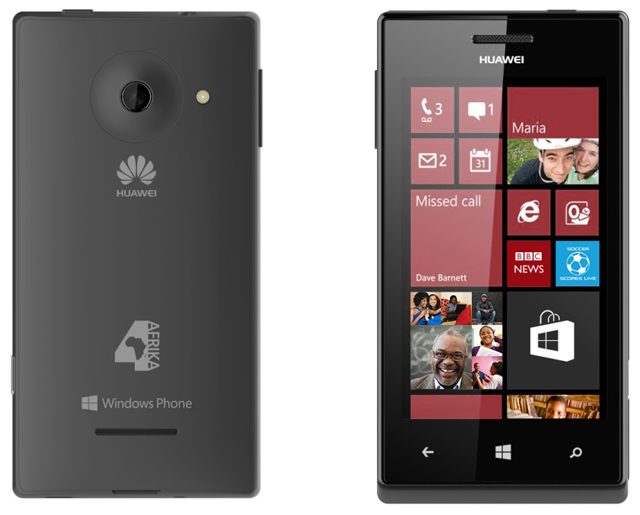
Huawei’s Windows Phone 8-powered 4Afrika smartphone, the first device to be launched under Microsoft’s new initiative to grow its presence in Africa, will cost less than US$200 (about R1 800 at the current exchange rate) and will go on sale in South Africa before the end of March.
Microsoft unveiled its 4Afrika Initiative at launch events in Johannesburg, Abidjan, Lagos, Nairobi and Cairo on Tuesday, under which it wants to get tens of millions of Windows Phone-based smart devices into the hands of African users. Microsoft South Africa MD Mteto Nyati says the deal with Huawei is the first of many to follow with other handset manufacturers.
Microsoft is investing $70m in the project, which also involves skills development and building pilot projects to test the feasibility of using television white-spaces spectrum — the gaps between television broadcasts — to deliver cheap wireless broadband in Africa.
A spokesman for Huawei South Africa confirmed on Tuesday afternoon that the Chinese company’s 4Afrika device will cost $200 or less and will be available before the end of the first quarter.
In addition to South Africa, the smartphone will be available in Egypt, Nigeria, Kenya, Côte d’Ivoire, Angola and Morocco at launch.
The Huawei 4Afrika is a customised version of the company’s Ascend W1, launched in January at the Consumer Electronics Show in Las Vegas. The smartphone is 10,1mm thick and features a 4-inch, 480×800-pixel LCD screen.
It has a 1 730 mAh battery, providing up to a claimed 420 hours of standby time and up to 560 minutes of talk time on 3G. It is powered by a 1,2GHz dual-core Qualcomm Snapdragon and an Adreno 305 graphics processor. There’s a 5-megapixel autofocus camera and VGA-level front-facing camera, and the device comes in blue, black and white, with a red version to follow in the months after its launch.
The Huawei 4Afrika phone features a customised application store, with apps and content designed for African markets. Microsoft said on Tuesday it would invest in Windows 8 and Windows Phone 8 app development centres in South Africa and Egypt. — (c) 2013 NewsCentral Media
- See also: Microsoft in major push into Africa




